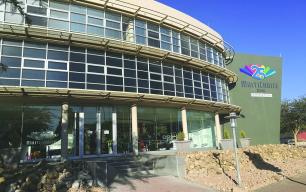Economist push job-centred growth

By Patience Makwele
At a time when Namibia’s economic growth continues to outpace job creation, economists and government officials have called for a deliberate shift towards employment-centred budgeting and structural transformation to ensure that national prosperity translates into real opportunities for citizens.
Speaking at the Economic Association of Namibia’s (EAN) public discussion on “The Jobless Growth Puzzle: Can Namibia Unlock Inclusive Prosperity?” held in Windhoek on Wednesday evening, experts dissected the persistent disconnect between rising output and stagnant employment figures, urging policymakers to anchor economic planning on jobs and productivity rather than growth alone.
International Labour Organization (ILO) senior employment specialist for Eastern and Southern Africa, Jealous Chirove, highlighted that Namibia’s unemployment rate, which currently stands at 36.9 percent under the narrow definition, reflects not just weak labour absorption but structural inefficiencies within policy implementation.
“We are seeing some transformation and growth in professional and financial services, but the challenge remains that construction and tourism, which traditionally absorb large numbers, have shown steep declines,” Chirove said. Chirove noted that changes in the definition of employment partly explain lower reported figures, as the 2023 Labour Force Survey counts only individuals producing goods and services for pay or profit. The deeper issue, he warned, lies in the movement of labour away from low-productivity sectors such as agriculture and domestic work, without corresponding job creation in high-value sectors.
He further criticised the lack of policy coordination and monitoring, saying past employment policies suffered from poor implementation and limited budget alignment.
“Employment creation was treated as a labour ministry issue, not a whole-of-government priority,” he said.
He called for a programme-based budgeting approach, where every ministry identifies how its funded programmes contribute to job creation, skills development, or enterprise growth.
Representing the government, Michael Humavindu, Executive Director in the Ministry of Finance and Public Enterprises, said reforms are underway to address this gap.
“The government recently approved the Integrated National Financing Framework, which ensures that future budgets will incorporate employment impact tracking alongside gender budgeting,” Humavindu announced. He emphasised that Namibia’s growth must be driven by structural transformation that generates value domestically, “so that jobs are created here at home, not elsewhere.” The state is investing in systems that strengthen the productive base through logistics, skills development, SME participation, and improved business conditions.
“Inclusive prosperity is not an abstraction. It is the logical outcome of a state investing deliberately in sectors that create value and opportunities for households and communities,” Humavindu said.
EAN board member Grace Mohamed emphasised the association’s role in promoting evidence-based dialogue between economists, the private sector, and policymakers.
“Ours is not to criticise government but to contribute to thinking that strengthens accountability and policy coherence,” she said, acknowledging support from FNB Namibia, Bank Windhoek, and the Hanns Seidel Foundation for enabling such platforms.
Ministry of Finance Deputy Director Hileni Stefanus highlighted the potential of Namibia’s Public-Private Partnership (PPP) framework to drive job creation. She said its flexibility allows the government to integrate employment objectives and local capacity-building into project contracts.
“By working closely with implementers, we can identify bottlenecks and tailor solutions to address both investment and labour concerns,” Stefanus said.
She added that sector-specific approaches which are focusing on infrastructure, health, and agri-processing could yield more targeted and measurable employment results.
The dialogue concluded with a shared view that Namibia must institutionalise employment-centred planning, where policy design, education systems, and investment strategies all align around creating decent work.
“Namibia doesn’t just need growth, it needs growth that works for people. Every policy, every budget, every investment decision must answer one question: how many jobs will this create?” Chirove concluded.
- 1222 views










Comments